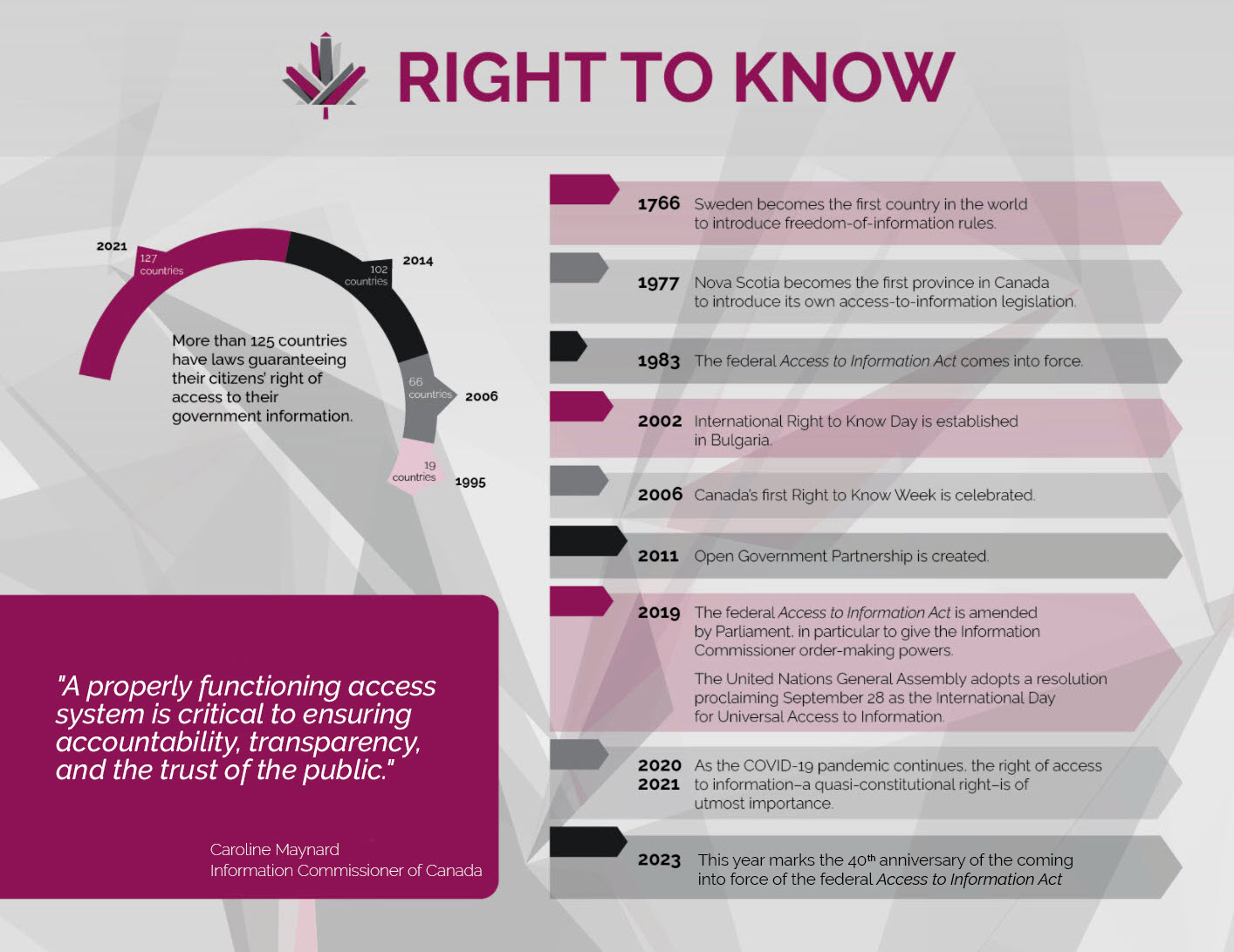Right to know
Canada marks Right to Know Week
In 2023, Right to Know Week will be celebrated during the week of September 25 to October 1.
Origin
International Right to Know Day was first introduced in 2002 in Sofia, Bulgaria, at an international meeting of access to information advocates. The purpose of this day is to raise awareness among citizens of their right to access government information, while promoting freedom of information as essential to both democracy and good governance.
Since 2002, Right to Know Day is celebrated around the world on September 28.
In Canada, Right to Know Day extends to a week of celebrations. Follow the hashtag #RTK2023 to find out more about the activities taking place across the country.
In 2015, the United Nations Educational, Scientific and Cultural Organization (UNESCO) proclaimed September 28 as the International Day for Universal Access to Information.
Considering that several civil society organizations and government bodies around the world were already celebrating this special day, the United Nations General Assembly also proclaimed September 28 as the International Day for Universal Access to Information in its resolution 74/5, which was adopted on October 15, 2019.

Text version
Right to know
“A properly functioning access system is critical to ensuring accountability, transparency, and the trust of the public.”
The Information Commissioner, Caroline Maynard
More than 125 countries have laws guaranteeing their citizens' right of access to their government information.
- 1995: 19 countries
- 2006: 66 countries
- 2014: 102 countries
- 2021: 127 countries
1766
Sweden becomes the first country in the world to introduce freedom-of-information rules.
1977
Nova Scotia becomes the first province in Canada to introduce its own access-to-information legislation.
1983
The federal Access to Information Act comes into force.
2002
International Right to Know Day is established in Bulgaria.
2006
Canada’s first Right to Know Week is celebrated.
2011
Open Government Partnership is created.
2019
The federal Access to Information Act is amended by Parliament, in particular to give the Information Commissioner order-making powers.
The United Nations General Assembly adopts a resolution proclaiming September 28 as the International Day for Universal Access to Information.
2020-2021
As the COVID-19 pandemic continues, the right of access to information–a quasi-constitutional right–is of utmost importance.
2023
This year marks the 40th anniversary of the coming into force of the federal Access to Information Act.
The 10 Right to Know Principles
Since the introduction of International Right to Know Day, certain principles have emerged that form the core of the Right to Know movement.
- Access to information is a right of everyone.
- Access is the rule. Secrecy is the exception.
- The right applies to all public bodies.
- Making requests should be simple, speedy, and free.
- Officials have a duty to assist requesters.
- Refusals must be justified.
- The public interest takes precedence over secrecy.
- Everyone has the right to appeal an adverse decision.
- Public bodies should proactively publish core information.
- The right to know should be guaranteed by an independent body.